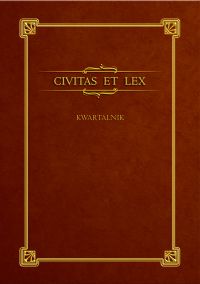GRUNTOWNA EDUKACJA A PERSPEKTYWA
UCZESTNICTWA W ŻYCIU PUBLICZNYM
W OCENIE OJCÓW KAPADOCKICH
THOROUGH EDUCATION AND THE PROSPECT OF PARTICIPATION
IN PUBLIC LIFE IN THE OPINION OF THE CAPPADOCIAN FATHERS
Author(s): Stanisław StrękowskiSubject(s): Social history, History of Education
Published by: Wydawnictwo Uniwersytetu Warmińsko-Mazurskiego w Olsztynie
Keywords: home education; public schools; rhetoric schools; public activity; Cappadocian Fathers;
Summary/Abstract: A thorough education of the young was highly valued by parents, who saw it as a foundationfor their sons’ success in public life in ancient Rome, both in the Republican and Imperial periods.Every young Roman, through physical training, moral and intellectual education, was prepared fromchildhood to hold office in both the army and the imperial administration. In the 4th century AD,when the Cappadocian Fathers lived and worked, both in the East and in the West of the Empirethere was always a need for people well-prepared for public service, who formed the backbone of thecivil and military administration. In home education, not only was the art of reading and writingtaught, but – especially in the case of boys – their physical development and skills useful in a futuremilitary career were taken care of. Parents were primarily responsible for such education, althoughthe skills of slaves, grandparents from both sides and older siblings were often used, who supportedthe parents in their educational activities. The next two stages of education were first in publicschools at primary and secondary levels, and then able young men were sent to the main schoolsrun by recognized teachers, where they completed their education useful for taking up duties inthe public life of the Empire. For young Christians who did not have a well-ordered educationalsystem, the only possibility of obtaining a thorough education was to use the system that had beenfunctioning for centuries in ancient Rome. The Cappadocian Fathers, obedient to the will of theirparents, acquired a thorough education by attending lectures by famous representatives of the so-called Second Sophistic with the intention of engaging in the public life of the Empire. However,in a short time, their lives changed and they used their knowledge and skills in the service of theChurch, combating heterodox teaching and strengthening the faithful in their fidelity to orthodoxy.They recommended that young people acquire a thorough education, in which they should avoidmythological content that was the content of readings recommended by teachers in public schools.That which ennobled the spirit and supported a virtuous life should be accepted, but everything thatwas immoral and incompatible with the teachings of Christ should be rejected. The CappadocianFathers did not oppose young people studying secular sciences and engaging in public life, butconcern for preserving the faith in Christ had to be in the first place.
Journal: Civitas et Lex
- Issue Year: 44/2024
- Issue No: 4
- Page Range: 63-84
- Page Count: 22
- Language: Polish

